In the digital age, monitoring and regulating large digital platforms is an indispensable task for competition authorities.
Turning Point Decisions
According to the National Competition Commission, in the context of the 4.0 technology revolution that is dramatically changing the global economy . Some countries, including Chile, have emerged as a model for digital competition management. In particular, thanks to the decisive intervention of Fiscalía Nacional Económica (FNE) - Chile's national competition authority. This agency has demonstrated a strong commitment to protecting fair competition in the digital market, ensuring the rights of consumers and small businesses.
 |
| Headquarters of Fiscalía Nacional Económica - Chile's national competition authority. Photo: FNE |
Accordingly, in November 2023, FNE officially announced the closure of a two-year investigation into major food delivery platforms such as Uber Eats, PedidosYa and Rappi. The focus of the investigation was on “most favored nation” (MFN) terms, a strategy often used to retain suppliers by requiring them not to offer better prices or conditions on any other channel, including on their own website.
FNE believes that these MFN clauses have caused significant harm to the market. They have tied restaurants tightly to the platforms, reducing their ability to compete on price and increasing costs for consumers. As a result, prices on food delivery platforms are often higher than reasonable, while consumer welfare is significantly reduced.
During the investigation, all three platforms Uber Eats, PedidosYa, and Rappi agreed to remove their MFN clauses and pledged not to apply similar clauses in the future. The Tribunal de Defensa de la Libre Competencia (TDLC), Chile's competition authority, approved the decision, calling it a milestone in digital competition management.
Previously, in August 2023, FNE investigated the online hotel booking market. The investigation focused on broad MFN clauses; in which hotels are also required to offer prices and conditions no less favorable than those offered by any other distribution channel, including on their own websites.
FNE argues that broad MFN clauses have restricted competition between booking platforms, driving up prices and reducing the variety of choices available to consumers. At the same time, these clauses reduce the ability of hotels to offer their own offers, thereby limiting innovation and competition in the market. In conclusion, FNE proposes that the TDLC completely ban broad MFN clauses in the online hotel booking sector. They also encourage platforms to move towards more transparent cooperation with hotels, facilitating sustainable and fair development in the tourism industry.
 |
| Broad MFN clauses have limited competition among booking platforms. Illustration photo |
Many valuable lessons for Vietnam
The National Competition Commission assessed that Chile's actions not only created an important precedent in the region but also had great significance in the context of global digital competition management. The strong handling of MFN clauses has helped Chile shape a model of protecting healthy competition in the digital market, ensuring transparency and fairness for all participants.
“Chile has shown that, in the digital age, monitoring and regulating large digital platforms is an indispensable task for competition authorities. The success of the FNE in investigating and handling these cases sends a clear message: Any behavior that distorts the market or undermines consumer interests will be severely punished,” said the National Competition Commission.
The Vietnam Competition Authority also believes that the fight against MFN clauses in Chile offers many valuable lessons for Vietnam, where large digital platforms are playing an increasingly important role in the economy.
That is, building a strong legal framework, Vietnam needs to establish clear regulations on competition in the digital market, especially closely monitoring provisions that have the risk of restricting competition such as MFN. These regulations must be designed to protect not only consumers but also small businesses, which are vulnerable in the digital business environment.
In addition, it is necessary to strengthen the capacity to enforce the Competition Law. The human resources of competition management agencies need to be improved in terms of expertise and equipped with modern technology to quickly detect and handle violations.
At the same time, transparent competition needs to be encouraged. Vietnam needs to encourage digital platforms to cooperate more transparently with their partners, thereby promoting healthy competition and facilitating innovation.
Another important aspect is increased international cooperation. Learning from the experiences of countries like Chile and working with international regulatory bodies will help Vietnam develop policies that are in line with global trends, while also improving its oversight capacity in the digital sector.
Chile has demonstrated that with strong measures and determination, a country can make positive changes in maintaining healthy competition in the digital market. The lessons from Chile are not only valuable for countries in the region but also have global implications, especially in the context of digital technology increasingly dominating the world economy.
“For Vietnam, this is an opportunity to orient competition management policy in the digital age, creating a fair business environment where businesses and consumers are protected,” the Competition Investigation Agency affirmed.
| National Competition Commission: Transparency and fairness are not only the foundation for sustainable development but also the decisive factor for Vietnam to integrate more deeply into the global economy. A fair and transparent digital market will be the "key" to promoting innovation and economic development in the future. |
Source: https://congthuong.vn/quan-ly-canh-tranh-ky-thuat-so-kinh-nghiem-tu-quoc-te-374282.html



![[Photo] Prime Minister Pham Minh Chinh chairs the second meeting of the Steering Committee on private economic development.](https://vphoto.vietnam.vn/thumb/1200x675/vietnam/resource/IMAGE/2025/11/01/1762006716873_dsc-9145-jpg.webp)




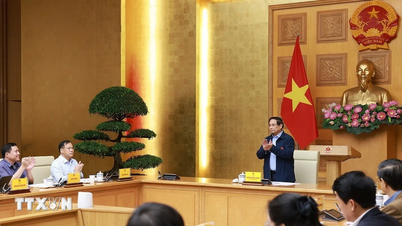





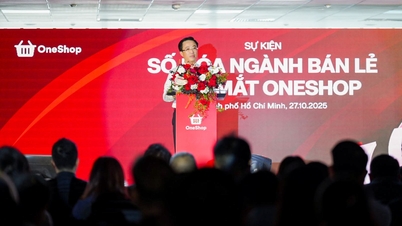


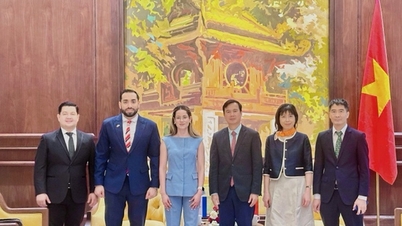

























































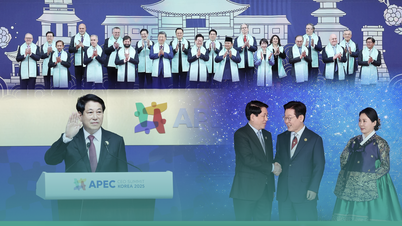







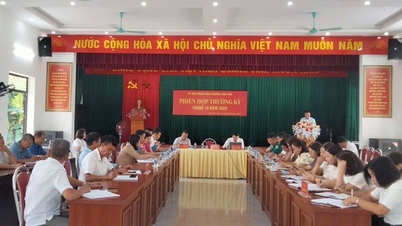




























Comment (0)